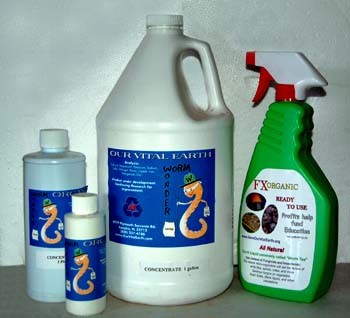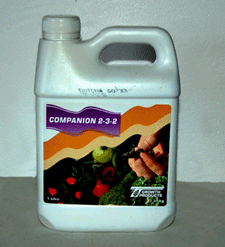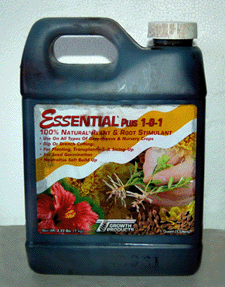

Natural Feed and Insect Treatment
We do not like to use pesticides in our greenhouses. This is a personal choice to preserve our planet. But we also feel that it is a better way to grow orchids. Our approach is to use natural insecticides that feed and inoculate the plant at the same time. Strong healthy plants will fight off diseases.
No one is spraying poisons on orchids in the wild but they survive just fine. I often say that our cultivated orchids grow in spite of us not because of us.
Our main defense is Worm Tea. More properly called Vermi-liquid, it is the liquid extract from a worm bed. Humans have been growing plants in a symbiotic relationship with worms for thousands of years. We know it is beneficial for plants.
 Worms excrete liquid and manure that is very rich in microbes that the plants need. When we spray an Orchid or soak the plant in the Worm Tea, the microbes enter the roots and become symbiotic with the plant.
Worms excrete liquid and manure that is very rich in microbes that the plants need. When we spray an Orchid or soak the plant in the Worm Tea, the microbes enter the roots and become symbiotic with the plant.
Orchids and all plants can not absorb the Nitrogen and Phosphorus in fertilizers. It is the microbes in the soil that break these ingredients of fertilizers into a form the plant can use. Garden beds and potted plants build up a colony of these microbes in the soil. Orchids, since they are bare root or loosely packed in bark, do not have as much ability to sustain a colony of microbes. Some potting mediums like Coco Husk are sterile to start. By spraying Worm Tea, we are adding these microbes into the plant.
The most noticeable sign is the soaking of Vanda in Worm Tea. The roots will stay moist looking for several days. On a whole, I believe it is retaining about 30% more moisture in the roots.
An added bonus is the natural insecticide properties of Worm Tea. Worm Tea contains a chemical called ceitainese. It is harmless to humans and pets. It has one major feature in that it dissolves ceitain. Sprayed on us it does nothing, but sprayed on an insect it kills them. The skeleton of an insect is on the outside and made up of ceitain. It will dissolve the skeleton of scale even killing the Asian scale the is invading Florida's Sago Palms. It is effective against thripes, aphids, mealy bugs and most insects.
When spraying for thripes and mealy bugs whether with chemicals or Worm Tea, understand that they have a three day life cycle. You must spray 3-4 times in a ten day period to eliminate the eggs or they just reproduce. Mealy bugs also stack on top of each other protecting the bottom bugs from the spray and not getting a 100% kill. Repeated applications are necessary.

Our second line of defense is Companion brand, bacillus bacteria. We use it against the common orchid problems of black rot, Pythium fungi, shriveling leaves, Fusarium wilt, and root rot, Rhizoctonia fungi.
Bacillus is a soil fungicide. It works systemically through the roots of the plant. It will kill early stages of black rot on leaves as a contact fungicide, but it is necessary to treat the disease early. Its real value is in the sterilization of the potting medium and the inoculation of the plant against infection. It is recommended to treat the plants every 28 days. We treat every re-potted plant with a drench at the time of re-potting and sprayed every 14 days. (We spray more often since in a large greenhouse plants are sometimes missed).
When we spray we spray everything, plants, leaves, flower buds and open flowers. Worm tea will add moisture to the flowers extending their life a little.
 To the Worm Tea-bacillus mixture we add a rooting hormone of gibberic acid, found in Essentials brand. All three mix together and can be sprayed at the same time. In a 4 gallon backpack sprayer we add 10 ounces of Worm Tea, 1 ounce of Companion and 2 ounces of Essential. This does an entire greenhouse of about 4000 orchids. A one quart or one gallon garden sprayer will work for most hobbyist. These dilutions are for maintenance. We double the concentration of Worm Tea if there is an active pest attack and double the Essentials when we to try to revive a badly damaged root system.
To the Worm Tea-bacillus mixture we add a rooting hormone of gibberic acid, found in Essentials brand. All three mix together and can be sprayed at the same time. In a 4 gallon backpack sprayer we add 10 ounces of Worm Tea, 1 ounce of Companion and 2 ounces of Essential. This does an entire greenhouse of about 4000 orchids. A one quart or one gallon garden sprayer will work for most hobbyist. These dilutions are for maintenance. We double the concentration of Worm Tea if there is an active pest attack and double the Essentials when we to try to revive a badly damaged root system.
For a test result of Essentials ![]()